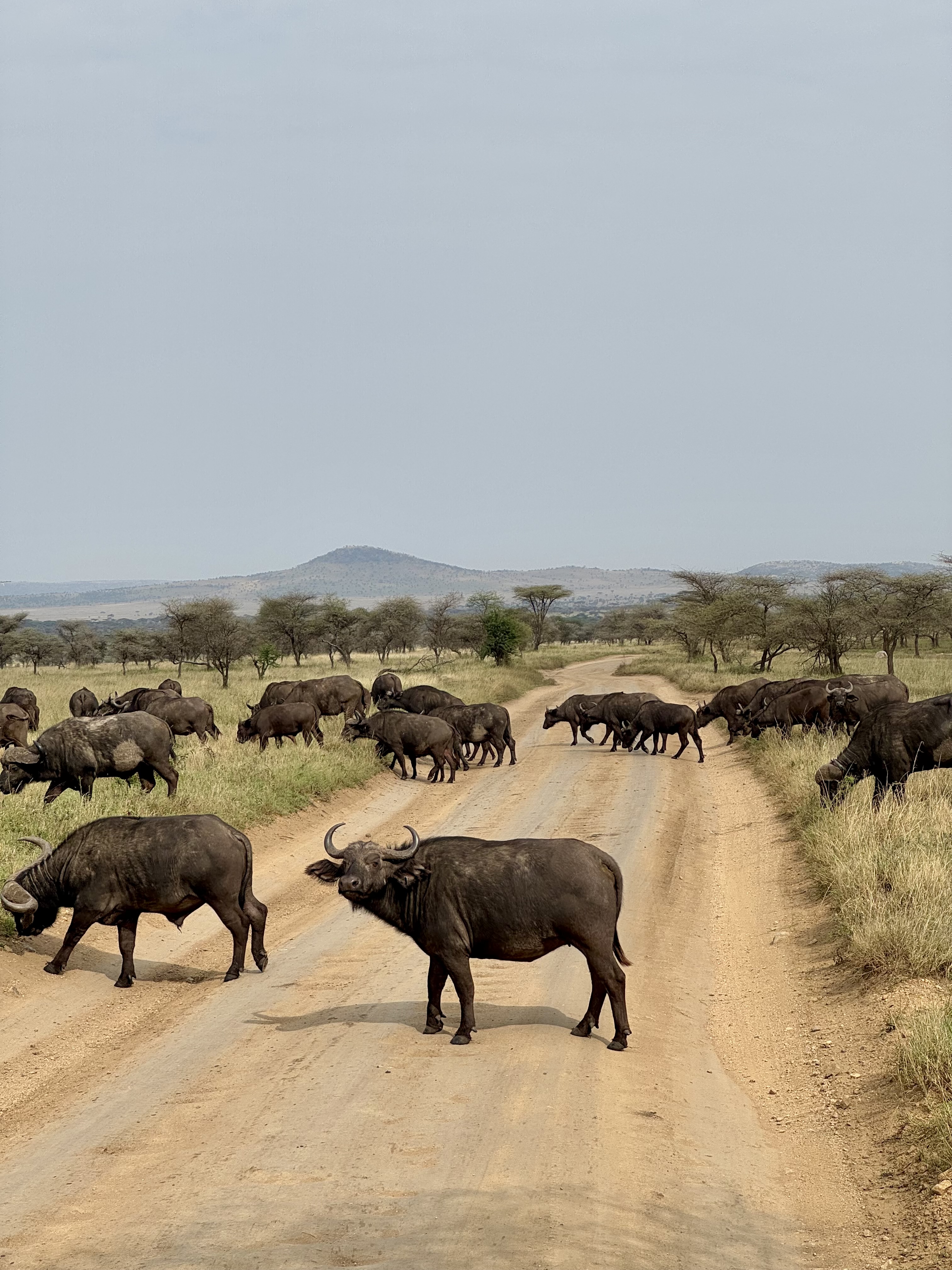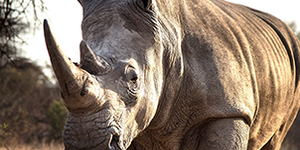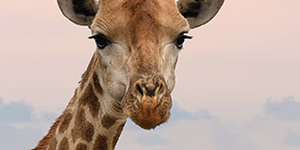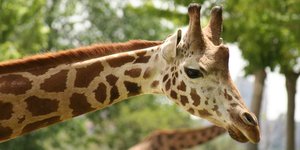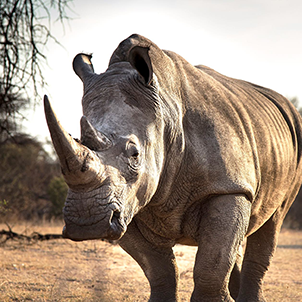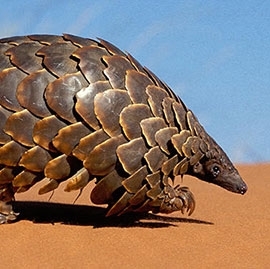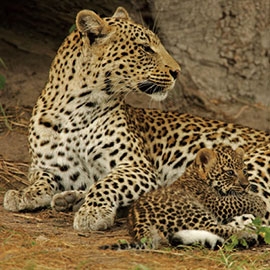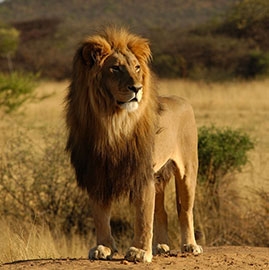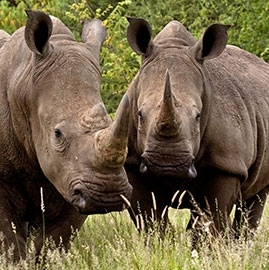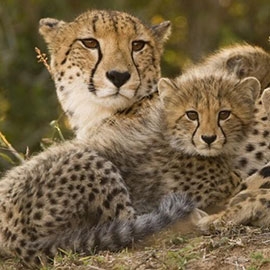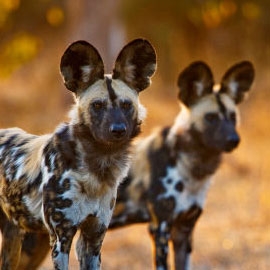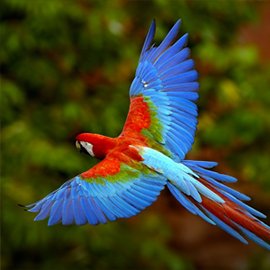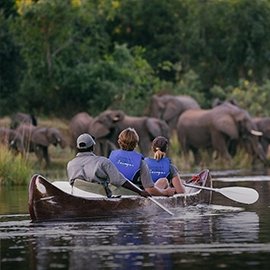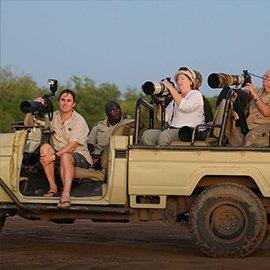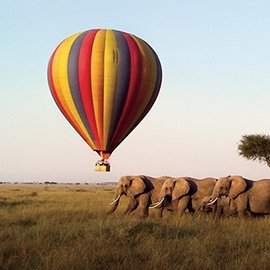Serengeti National Park
Safari suitability: 10/10
Find your tourThis park has it all and an incredible tourism infrastructure to boot.
What YAS members think
Highlights
- Annual migration of over two million ungulates
- The big five are present here
- Vast, open plains with the ability to get away from crowds and have your own ‘private’ safari.
About Serengeti National Park
Serengeti National Park is one of the most famous parks in Africa and is certainly Tanzania’s most famous and visited park. Established in 1951, it is also Tanzania’s oldest national park. Measuring around 14,763 km² or 5700 miles², it is over six times the size of its contiguous park in Kenya—the Masai Mara. The Serengeti and Masai Mara are very similar in terrain and in the types of wildlife sightings, but off-road driving is severely limited in the Serengeti whereas it is freely allowed in the Masai Mara. By restricting where the safari vehicles can travel, the wildlife of the Serengeti are less accessible to tourist and are able to live in a more wild environment.
Serengeti wildlife
Serengeti is home to the big five and big seven, which are the big five plus cheetah and wild dog. Probably the biggest claim to fame for the Serengeti is its annual migration of herbivores. All year-round over three million herbivores travel throughout the Serengeti, in a clockwise fashion, in search of the most lush and nutritious grasses. While the main stars of the migration are the blue (or white-bearded) wildebeest, of which there are over two million, the annual migration also includes herbivores such as zebras and various species of antelope.
Regions of the Serengeti
The Serengeti is generally divided into four sections:
-
Central Serengeti
-
Eastern and Southern Serengeti
-
Northern Serengeti
-
Western Serengeti
Central Serengeti
The central region of the Serengeti is a very fertile area with year-round water supplies. At the heart of the Serengeti is the Seronera Valley, with its lush green grasses and rivers. The year-round water results in resident prides of lions and other predators that do not need to follow the migration as they’ve adequate prey around the water supplies. Almost any safari to the Serengeti will include a few days in the central region as there is always ample wildlife to be seen.
Eastern and Southern Serengeti
The eastern and southern regions are where the short grass plains are, which makes for an excellent viewing locale for cheetahs. The area is more open here and one can see a large number of elephants and, during the migration, prides o f lions.
Northern Serengeti
As one heads north, the land becomes more rolling and is dotted with trees. The migration passes through this area on its way up to Kenya and must cross two rivers in the north: the Grumeti River and the Mara River. Both rivers are home to the Nile crocodile and crossings are a sight to behold. This region is also home to the largest population of elephants.
Western Serengeti
The western corridor is the least visited but has much to offer. The Grumeti River also runs through here and makes for excellent game viewing when the migration passes through. This area tends to be more open than that of the north and central and regions.
When to see the annual wildebeest migration in the Serengeti
| Month | Wildebeest location in the Serengeti |
| January | Central Serengeti, Eastern and Southern Serengeti |
| February | Eastern and Southern Serengeti |
| March | Eastern and Southern Serengeti |
| April | Central Serengeti, Eastern and Southern Serengeti |
| May | Central Serengeti. Western Serengeti |
| June | Central Serengeti. Western Serengeti |
| July | Western Serengeti, Northern Serengeti |
| August | Northern Serengeti |
| September | Northern Serengeti |
| October | Northern Serengeti |
| November | Northern Serengeti, Central Serengeti |
| December | Central Serengeti, Eastern and Southern Serengeti |
The Serengeti is often considered the best wildlife reserve in Africa, and it offers an unparalleled concentration of wildlife.
When is the best time to visit the Serengeti?
The Serengeti is a top safari destination at any time of year. January through early March is when the ungulates of the great migration give birth.
Looking to see baby wildebeest faces? Visit in January or February.
After a cheaper safari? March through May is the long rain season, which has its benefits, including lower lodging prices, less tourists and flowers.
Want that wildebeest river crossing photo? July through October sees the migration in northern Serengeti, where wildebeest must cross the perilous Mara River.
Sort by:

The Serengeti completely exceeded my expectations. The landscape was stunning—endless open plains dotted with acacia trees and wildlife everywhere you looked. Highlights included watching a pride of lions at sunrise and witnessing a river crossing during the Great Migration. Our guide was friendly, professional, and knew exactly where to find the animals without disturbing them. The lodges were comfortable, with great food and warm hospitality. It felt like stepping into another world—peaceful, wild, and awe-inspiring. Truly a once-in-a-lifetime adventure.
 Tanzania
Tanzania

As a tour operator with Burigi Chato Safaris, I have had the privilege of guiding countless travelers through the breathtaking landscapes of Serengeti National Park, and I can confidently say it never fails to amaze. The Serengeti is a living theatre of nature. From the awe-inspiring Great Migration of over a million wildebeest and zebras to the thrilling encounters with the Big Five, every game drive offers something extraordinary. The golden plains stretch endlessly, dotted with acacia trees, kopjes, and thriving wildlife. Whether it's sunrise over the savannah or a lion pride on the move, the photographic opportunities are unmatched. We always recommend Serengeti to our clients, whether they are seasoned safari-goers or first-time visitors, because it captures the true spirit of Africa. The park’s organization, commitment to conservation, and support for local communities also make it a destination we are proud to promote. For anyone seeking an unforgettable safari experience, Serengeti is the crown jewel of Tanzania. Burigi Chato Safaris

The Serengeti is nothing short of magical—a vast, seemingly endless plain where the thrill of spotting wildlife never stops. It's a true haven for safari enthusiasts, offering some of the best game viewing in the world. During my time there, I was blown away by how easily we could spot the "Big Five" (lion, leopard, elephant, buffalo, and rhino)—and not just once, but multiple times a day! Whether it was a lion pride lounging in the grass, elephants gently grazing, or buffalo herds dotting the horizon, the Serengeti never stopped surprising us. The sheer scale of the landscape, combined with the abundance of animals, made every game drive an exciting adventure. It's a place where wildlife roams freely, and the beauty of nature unfolds at every turn. If you're lucky enough to visit, you can witness not only the Big Five but also a host of other animals, from cheetahs to giraffes, and birds to wildebeest, making the Serengeti feel like a never-ending safari. Simply put, it’s a paradise for anyone who loves wildlife and adventure.

The vast golden plains, dramatic skies, and endless horizons make it one of the most breathtaking places on Earth. But it’s not just about the scenery — it’s the wildlife that brings the Serengeti to life in the most extraordinary way. From the moment you enter the park, you're surrounded by nature in its rawest, most powerful form. Lions lazing under acacia trees, graceful giraffes wandering in the distance, and massive herds of wildebeest moving in perfect rhythm — it’s like watching a living documentary unfold right before your eyes. We were lucky to witness part of the Great Migration — a spectacle that words can barely describe. Thousands of wildebeest and zebras crossing the plains in search of fresh grazing land, with predators like lions and crocodiles watching closely — it’s nature at its most dramatic and awe-inspiring. Our guide was incredibly knowledgeable, sharing fascinating insights into animal behavior and the ecosystem. Each game drive was unique, filled with unexpected moments — a leopard perched in a tree, a herd of elephants bathing, a cheetah sprinting across the grasslands. The sunsets? Absolutely magical. Watching the sun sink behind the savannah, painting the sky in shades of orange and pink, is a memory I will carry forever. The Serengeti is more than just a safari destination — it’s a place that reconnects you with the wild, slows down time, and leaves you in awe of the world’s natural wonders. Whether you’re a wildlife enthusiast, a photographer, or a first-time visitor to Africa, the Serengeti will leave a mark on your heart.

I’ve worked in Tanzanian tourism since 2008 and visited the Serengeti countless times, but I’ve never grown tired of it. The moment I leave, I start missing it. Serengeti is more than just a national park for me; it’s my soul’s home. As a safari operator and guide, I’ve had the honour of sharing Serengeti’s beauty with guests from around the world. The wildlife is breathtaking — lions, cheetahs, elephants, leopards, and the migration herds, but what keeps pulling me back is the feeling of peace and wildness that you can’t find anywhere else. I wish I could live here forever, surrounded by nature and the rhythm of the bush. Whether it’s your first or tenth time, Serengeti never fails to surprise and humble you. If you’re dreaming of Africa, start here. It will change your life.

I would like to express my heartfelt appreciation to Sidan Nature Safaris for providing an unforgettable adventure. From the moment our journey began, their professionalism, attention to detail, and genuine hospitality were evident. The itinerary was thoughtfully planned, combining breathtaking landscapes, thrilling wildlife encounters, and rich cultural experiences. Our guide was incredibly knowledgeable

The Serengeti National Park is one of Tanzania's most famous and celebrated national parks, known for its rich wildlife and stunning landscapes. Here's a comprehensive review of the park, covering its features, attractions, wildlife, accommodation, and tips for visitors. 1. Overview: Size and Location: The Serengeti spans approximately 14,763 square kilometers (about 5,700 square miles) and is located in northern Tanzania. It borders the Ngorongoro Conservation Area and is part of the larger Serengeti Ecosystem. UNESCO World Heritage Site: The park was designated a UNESCO World Heritage Site in 1981 due to its extraordinary ecological significance. 2. Wildlife: Big Five: The Serengeti is home to the "Big Five" – lions, leopards, elephants, buffaloes, and rhinoceroses. It is an ideal destination for those looking to see these iconic animals in their natural habitat. Migratory Patterns: One of the most remarkable features of the Serengeti is the Great Migration, where millions of wildebeests, zebras, and gazelles migrate in search of greener pastures, primarily occurring from April to July. This spectacle offers breathtaking wildlife viewing opportunities and is a highlight for many visitors. Other Wildlife: In addition to the Big Five, the park hosts a diverse range of wildlife, including cheetahs, giraffes, hippos, and various bird species. Birdwatchers will find the Serengeti particularly rewarding, with over 500 species recorded. 3. Scenery and Landscapes: Diverse Ecosystems: The Serengeti features a variety of landscapes, including grassy plains, acacia woodlands, rivers, and kopjes (rocky outcrops), providing stunning vistas and unique habitats for different species. Accessibility: The park is accessible by road and air, with various entry points and lodges. Guided safaris and self-drive options are available, catering to different preferences and budgets. 4. Accommodation: Variety of Options: Accommodation ranges from luxury lodges and tented camps to budget campsites. Options include well-known lodges like Serengeti Serena Lodge and luxury tented camps like Four Seasons Safari Lodge. Choosing accommodations close to the action can enhance the safari experience, especially during the migration. Authentic Experiences: Some camps offer cultural interactions with local communities or opportunities to learn about conservation efforts, enriching the visitor’s experience beyond wildlife viewing. 5. Tips for Visitors: Best Time to Visit: The park can be visited year-round, but the timing may affect wildlife viewing. The Great Migration from April to July offers stunning animal sightings, while December to March is great for viewing large populations of predators. Pack Wisely: Bring binoculars, a camera with a good zoom lens, comfortable clothing, sun protection, and insect repellent. Prepare for varying temperatures, particularly cooler mornings and evenings. Respect Wildlife: Maintain a safe distance from animals, follow park guidelines, and adhere to the rules set by your guides to ensure both your safety and the well-being of the wildlife. 6. Conclusion: The Serengeti National Park is a must-visit for anyone interested in wildlife and natural beauty. With its breathtaking landscapes, diverse ecosystems, and incredible wildlife spectacles like the Great Migration, it promises an unforgettable safari experience. Whether you’re an avid photographer, wildlife enthusiast, or simply looking to immerse yourself in nature, the Serengeti offers something for everyone. Final Thoughts Before planning your trip, be sure to check the current entry requirements, park rules, and any seasonal considerations that may affect your visit. Also, consider booking a guided safari for the best chances of seeing wildlife and for enriching experiences from knowledgeable guides. Enjoy your adventure in the Serengeti! If you have any other specific questions or need more information, feel free to ask!

Nestled in northern Tanzania, Serengeti National Park is a breathtaking expanse of savannahs, woodlands, and rivers that captivates the heart of every visitor. Spanning over 14,000 square kilometers, this UNESCO World Heritage Site is a testament to nature's grandeur, where the rhythm of life unfolds in all its splendor. The Beauty of the Serengeti The Serengeti’s landscapes are a tapestry of golden grasses swaying under the African sun, dotted with acacia trees and endless horizons that stretch as far as the eye can see. The park's beauty is most striking at sunrise and sunset, when the sky transforms into a canvas of vibrant oranges, pinks, and purples. The air is filled with the sounds of nature—chirping birds, rustling leaves, and distant roars of lions—creating a symphony that enchants all who enters. The Big Five Among the many wonders of the Serengeti, the "Big Five" reign supreme, captivating adventurers and wildlife enthusiasts alike. - Lions: Known as the kings of the jungle, these majestic creatures roam in prides, their powerful roars echoing across the plains. - Leopards: Elusive and graceful, leopards are masters of stealth, often seen lounging in trees, their spotted coats blending seamlessly with the dappled sunlight. - Elephants: The gentle giants of the savannah, African elephants roam in herds, their intelligence and social bonds evident as they care for their young. - Buffaloes: With their formidable presence, African buffaloes are often found in large herds, their sturdy bodies and fierce gazes commanding respect. - Rhinoceroses: Though rarer to spot, the endangered black and white rhinos are a symbol of wilderness, embodying the park's rich biodiversity. The Great Migration One of the most awe-inspiring spectacles in the Serengeti and indeed the world is the Great Migration. Annually, approximately 1.5 million wildebeest, accompanied by hundreds of thousands of zebras and gazelles, embark on a perilous journey in search of fresh grazing pastures. This migration, driven by the seasonal rains, is a heart-stopping display of survival. As they traverse the vast plains, these animals face numerous challenges, including fierce predators like lions and crocodiles lurking in the rivers. The sight of thousands of wildebeest thundering across the landscape, stirring up a cloud of dust, is a reminder of nature's raw power and the circle of life.

I highly recommend visiting Serengeti National Park for an unforgettable adventure. Known for its breathtaking landscapes and incredible wildlife, the park is famous for the Great Migration, where millions of wildebeest and zebras traverse the plains. Enjoy guided game drives, walking safaris, and hot air balloon rides to immerse yourself in the stunning environment. Accommodations range from luxurious lodges to cozy tented camps, all offering warm hospitality. Whether you're a wildlife enthusiast or seeking adventure, Serengeti National Park is a must-visit destination that promises lasting memories. Don't miss the opportunity to experience its magic!

The Serengeti lives up to every bit of the hype! From the moment we entered, we were surrounded by endless plains, dotted with thousands of animals. The highlight was seeing the Great Migration in action—literally thousands of wildebeests and zebras moving as one. Lions, cheetahs, and even a leopard made appearances during our game drives. The sheer scale of the park is overwhelming, but our guide knew just where to go for the best sightings. This place is a must for any wildlife lover!
Driving to the Serengeti from Arusha
Most international flights will arrive at JRO, Kilimanjaro International Airport. As many of the international flights arrive in the evening, many tour operators will have guests spend their first night in Arusha, which is about 45 minutes away. Depending on where in the Serengeti you are headed, the drive will take between four and six hours. The first part of the journey will be on tarmac roads, which allow for faster speeds. The roads then turn to dirt, and become bumpier. Most people who drive to the Serengeti combine the trip with a visit to Ngorongoro Crater since the park is en route.
Domestic flights from Arusha, Dar es Salaam or Kilimanjaro to the Serengeti
The Serengeti is easily accessible by plane, with domestic flights daily out of Arusha and Dar es Salaam. There are a few air strips in the Serengeti: one in the northern part, one in the western corridor and one in the central area, Seronera.
The following airlines travel to Serengeti National Park

As Salaam Air has grown to be a leading air carrier between the Tanzanian Islands. Our experienced team understands that customer satisfaction is important to the creation of a successful flight operation. Thus, we go above and beyond to satisfy our clients. The airline plies eight routes to promote tourism within and outside the country. We have two fuel-efficient aircraft Cessna 208B Grand Caravan and Embraer EMB 120 Brasilia, which are good for the environment and the safety of our clients.We would like to help you discover more about our Islands here on our website and at every step of your journey Visit website
Also flies to:


Auric Air Services Ltd is Tanzania's preferred corporate and safari airline with a wide network of domestic scheduled services with daily scheduled services to more than 30 destinations and handles approximately 8500 passengers every month. From its bases at Mwanza AirportMwanza, Julius Nyerere International AirportDar-es-salaam and Arusha Airport, Auric Air provides scheduled charter flights to some of the most remote and otherwise inaccessible destinations (parks & game reserves) within Tanzania. Visit website
Also flies to:




Coastal Aviation is an airline operating out of Dar es Salaam - charter flights. Coastal Aviation flying to some 100 strips located in some of the most isolated pockets of the East African Region. The scheduled Coastal network also connects visitors to Kenya, Uganda and Rwanda with the world-famous Serengeti, links the emerging tourism destinations of Mozambique with the Southern Tanzania parks of Selous and Ruaha, and unites the tropical island paradises of Pemba, Zanzibar, Mafia and Fanjove Private Iaslandwith the National Parks and towns of the mainland. Our state of the art fleet is composed of 20 aircraft and has been expertly-adapted to the African safari environment, without compromise to safety and comfort. Visit website
Also flies to:




Flightlink is a scheduled airline with Air Operator Certificate (AOC) and Air Service License (ASL) granted by Tanzania Civil Aviation Authority & Kenya Civil Aviation Authority to conduct Private & Scheduled Flight under Public Transport category within the region. All the aircraft in our fleet are chosen for their excellent safety records and their ability to perform in even in the most hostile conditions, so landing be it in the bush or on tarmac is not at all taxing. Visit website
Also flies to:


Precision Air is a publicly-listed Tanzanian airline and a leader in providing scheduled flight services to over 10 destinations within and outside Tanzania from its main hub Dar es Salaam. The company operates on the principle that quick, comfortable and reliable service is the best way to serve its customers. Through its customer-focused approach, many have become part of the Precision Air family. Precision Air started with its headquarters in Arusha - the midpoint between the Cape and Cairo, which is the entry point to many of Tanzania's world-renowned landmarks and national parks. The headquarters of Precision Air are now Dar es Salaam, the business complex of the country, which is home to a vast size of traffic travelling within and outside Tanzania. Visit website
Also flies to:




Premium Charter Service is an air charter broker based in Tanzania. We offer our valued clients a truly exclusive flying experience, one that combines luxury with the convenience of flying privately. Our network of domestic and international operators adheres to strict standards of quality. We deliver a superior experience to our clients with a high level of professionalism. Visit website
Also flies to:


Regional air is a recognized leader in the aviation industry in Tanzania, the airline began in 1997 with one pilot and one aircraft. They are affiliated to the long-established Nairobi-based domestic airline, Airkenya. We are based in the northern Tanzanian town of Arusha. Arusha is the starting point of safaris into Northern Tanzania, as the airline also offers charters to these various parks and game reserves. Visit website
Also flies to:

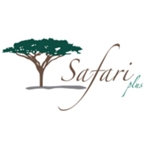
Safari Plus is Tanzanias first, Premium Charter operator in Tanzania positioned to offer unique flying experience while giving our customers flexibility and total control over their travel needs around the country and beyond. The Airline was established in 2009. 1 x Beechcraft King Air 350 with 8 Seats configured in executive club seating. 2 x Beechcraft 1900D with 18 Seats. Head office based in Dar es Salaam, Tanzania. Operating base at Julius Nyerere International Airport. Approved by the Tanzania Civil Aviation Authority to operate both; Scheduled Air Services and Non-Schedule Air Services (Charter Services). Visit website
Also flies to:


Premier safari airline and charter. Safarilink is Kenya's premier safari airline with a network of connecting domestic scheduled services to all the best safari destinations within Kenya and across the border into northern Tanzania. From it's base at Wilson Airport, Nairobi SafariLink provides daily scheduled flights to Masai Mara, Amboseli, Tsavo West, Naivasha, Nanyuki, Lewa Downs, Samburu, Lamu, Kilimanjaro, Loisaba, Migori and Diani Beach. Additionally it can also provide private charter flights if a client's particular requirement as regards destination or timing cannot be met by the scheduled services. Visit website
Also flies to:



TANZANAIR was formed in 1969 and pioneered aviation throughout Tanzania. Today it continues to live up to its slogan as theComplete Aviation Company. It was founded by Dinos J Samaras who managed the Company until he passed away in April 2010. It is now headed by his son John Samaras who was his deputy since 1983. With 45 years experience, TANZANAIR offers tailor-made air travel to suit the needs of its customers. With a modern fleet of twin and single-engine Cessna and Beechcraft turbine aircraft, TANZANAIRs well-established reputation leads the way in air charter services throughout the region. TANZANAIR operates out of its own purpose-built Passenger Terminal located between Terminal I and II at Julius Nyerere International Airport in Dar es Salaam. The passenger lounge is adjacent to the two hangars. It is housed within a secure wall enclosed compound with ample parking facilities. Visit website
Also flies to:


ZanAir Limited is a domestic airline based in Zanzibar. Since their inaugural flight in 1992, ZanAir has continued to establish a quality reputation, serving esteemed clientele. ZanAir is an acknowledged expert within Tanzania serving all destinations, including remote unpaved bush locations. Visit website
Also flies to:


Flown by an international team of pilots, Zantas Air has one of the youngest fleets of Cessna Grand Caravans in Tanzania. These are maintained to the highest safety standards and comply with the ICAO, CESSNA, and TCAA directives. We have an exclusive lounge at Arusha airport. Guests can relax in our comfortable lounge while they wait for their flight. Our operations are designed to suit our client's needs with a customized itinerary based on their schedule. Zantas Air works with its sister company, Mbali Mbali Lodges and Camps, to offer shared charter flights. We fly passengers from Northern Tanzania to Western Tanzania twice a week on Monday and Thursdays. Visit website
Also flies to:

Serengeti map
Nearby parks and game reserves
Related articles
Latest photos
